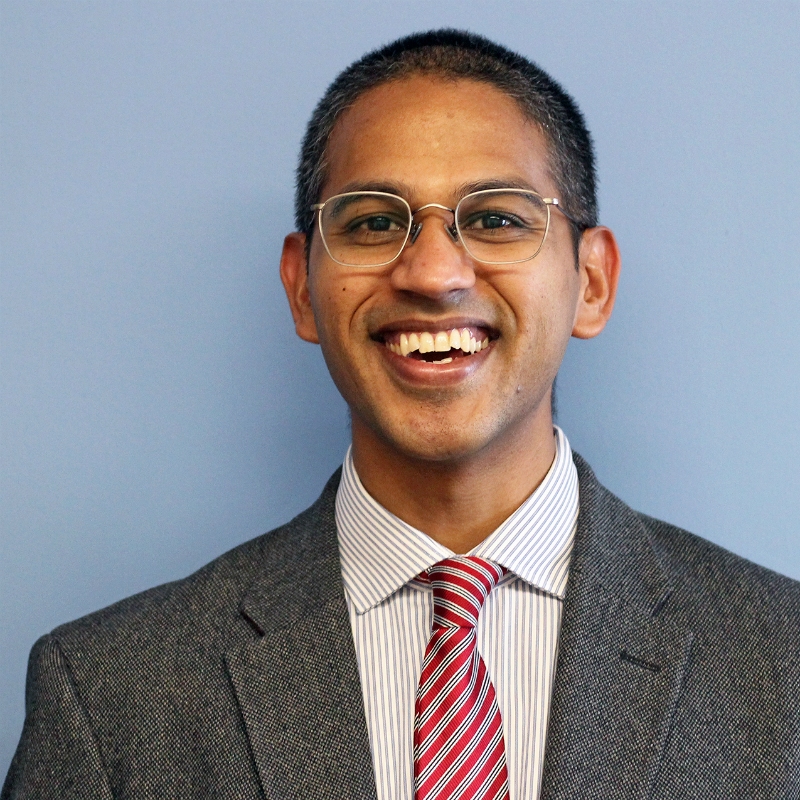News and Releases

Faculty Profiles
Practicing theology from the bottom-up
Getting to know the story and research of CMU’s newest professor Rev. Dr. John Boopalan
Friday, December 18, 2020 @ 9:00 AM | Faculty Profiles
 Rev. Dr. Sunder John Boopalan
Rev. Dr. Sunder John Boopalan
Assuming a new position teaching theology at Canadian Mennonite University (CMU), Rev. Dr. Sunder John Boopalan and his family arrived in Winnipeg in October 2020 after a move, during the pandemic, from their home in Boston, MA. Growing up in the religious context of Pondicherry, a former French colony in southeast India, Boopalan was raised by his mother, a nurse and Hindu convert to Christianity, and his father, a lab technician and preacher, who together attended the "Bakht Singh Assemblies," a multi-lingual and multi-ethnic indigenous (that is, without foreign missionary history) church movement. Describing the religious atmosphere of his upbringing, Boopalan states that "there was an interesting mix of theological influences that combined pietist, holiness, and charismatic movements. Services were four hours and included plenty of music played with indigenous Indian instruments and would always end in a love feast cooked by church members and shared sitting around mats on the floor."
In his young adult life, Boopalan had no interest in studying theology. Instead, he spent his undergraduate years capturing pictures of birds and butterflies, assessing health levels of ecosystems, while pursuing his three majors of Environmental Science, Chemistry, and Zoology at St. Joseph's College in Bangalore. After receiving an offer for a fully-funded master's degree at a major university in India, Boopalan recalls having thoughts that at first startled him, causing him to doubt his path and to consider pursuing theology. Remembering the stories of his grandfather that had animated his household as a child, Boopalan decided to take a gap year to volunteer as a chaplain-in-training at the same hospital his grandfather worked in as a chaplain. Boopalan recalls, "I watched patients in the hospital come in and out with despair, hopelessness, hope, and faith. I saw people born and people die. This changed me. It clarified for me that I wanted to 'do' theology."
After rejecting his offer to study science, Boopalan attended the United Theological College in Bangalore to complete a Master of Divinity, where he would begin to study political theology and liberation theology. He shares, "I began to realize that society is characterized by deep violence. It was in the sacred space of a theological classroom setting that I started seeing the world in a whole new light. This is what prompted the research I would continue at Princeton."
There are some for whom, like the famous character Ivan Karamazov in Dostoevsky's The Brothers Karamazov, injustice is enough to deny the existence of God. This is not so for Boopalan, whose reaction to caste-based discrimination and violence fueled his doctoral research on hospitality and social justice from a Christian perspective, including his forthcoming book Dalit Theology: A Global Introduction. Boopalan comes from Dalit heritage, a people whose continual experience in India is characterized by structural wrongs based on caste. Crimes embedded within the collective consciousness, such as the recent case of a Dalit man murdered for eating in the presence of dominant castes, are not uncommon. "Caste-based discrimination is very real in India, but Dalits and other historically marginalized communities continue to persist" says Boopalan. Boopalan explains that "when Christian missionaries came to India, it was the Dalits that approached them. In converting to Christianity, Dalits gained access to scripture, education, and a new theological imagination."
Boopalan teaches classes such as "Christianity and Indigeneity" and "Reading the Bible as a Witness to Liberation" at CMU. His book, Memory, Grief, Agency: A Theological Account of Wrongs and Rites can be purchased at CMU's CommonWord Bookstore. To view his faculty bio, visit https://www.cmu.ca/about/faculty/569.
Watch Boopalan reflect on teaching "Reading the Bible as a Witness to Liberation" this fall.
KEYWORDS: faculty, profile, John Boopalan, BTS, Biblical and Theological Studies, theology, video

 Print This Article
Print This Article